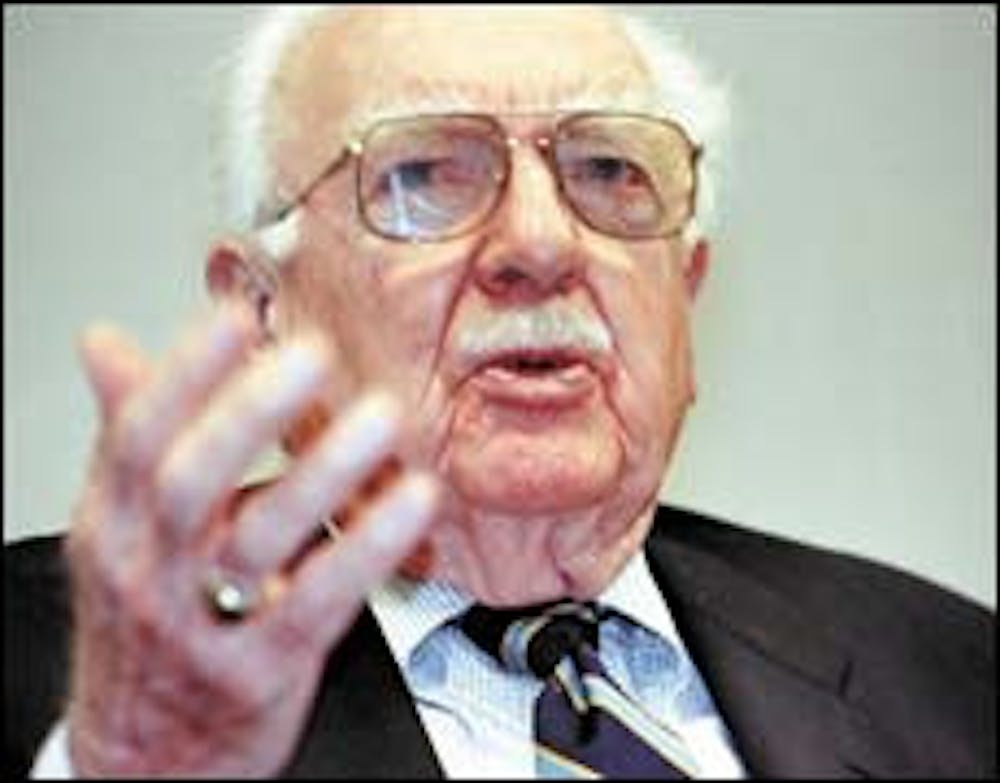Famed CBS correspondent Walter Cronkite talked to ASU students Friday about his career, his concerns with the press and how to break into the news field.
Cronkite, the namesake of ASU's School of Journalism and Mass Communication, visited the University last week to attend an annual award ceremony honoring longtime friend and news commentator Andy Rooney.
During a Friday morning "Introduction to Mass Communication" class, Cronkite sat down with journalism professor Donald Godfrey and about 350 students to offer advice and answer questions about his experiences.
"This looks more like the first day of class when everyone showed up," Godfrey said.
Cronkite, often called "the most trusted man in America," began his journalism career during World War II as a reporter for The United Press, and he later went on to become the anchor and managing editor of the "CBS Evening News."
During his career, which spanned more than 50 years, Cronkite saw many changes in the news business.
"The thing I like the most is the technical developments," he said.
Cronkite compared the process of filing a story from overseas at the beginning of his career to the current technologies.
"Can you imagine," he said, "a picture being taken in London took a week or more to get back to the U.S. ... Now it's less than 24 hours."
Along with these positive changes came some negative ones, Cronkite said. He added that the profit motive and the lack of competing newspapers in an area brought a blow to the news business.
"What I like least is that television and radio are so caught up in advertising dollars," he said.
When he worked at the Houston Post, Cronkite said newspapers emphasized the importance of checking the facts.
"I think a lot of errors slip in to the newspaper today that shouldn't be there," he said, "simply because newspapers have no one to compare themselves to."
Cronkite emphasized that there was a lack of editing and accuracy in television newscasts.
"There's a kind of thoughtlessness in television news because they're concentrating on the picture," he said.
Cronkite also offered some advice to students trying to launch their careers.
"Persistence is one of the requirements of a good reporter," he said. "Keep going back. The trick is to keep bothering [editors]."
Journalism senior La Poasa said this was valuable advice.
"I think it's very important," she said. "Sometimes when we get turned down once we just cave in."
Although she is not enrolled in it, Poasa attended Friday's class to hear Cronkite speak.
"This year it was an honor just to be able to listen," she said, as she has attended Cronkite's annual presentation the past two years.
"The first time I saw him I was totally in awe," she said. "He's a legend."
Reach the reporter at katherine.j.krzys@asu.edu.




